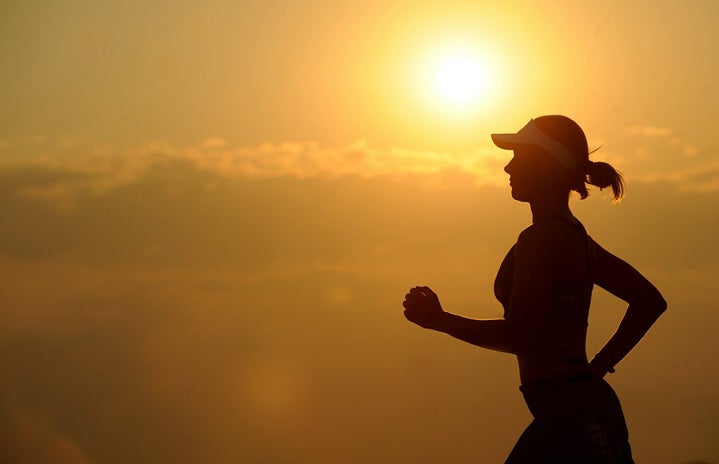Now that it is mid-November, the dreaded 4pm sunset in St Andrews has come in full force and days will only continue to get shorter from here. Already, the heavy sighs of students juggling deadlines and bracing for final exams are being felt throughout town. Like a hivemind, it feels as though the entire St Andrews community has been hit with the same weighty tiredness. Yet, this comes as no surprise when Seasonal Affective Disorder – marked by depression, lethargy, irritability, and difficulty sleeping – affects about 2 million people in the UK. However, while it is tempting to stay in bed all day, sleep in as much as possible, drink a fifth cup of coffee to push through the afternoon, and put off work once the sun goes down, there are other, more sustainable methods one can include in their daily routine to make this time of year at least a little more bearable. It is also important to keep in mind that not all these tips will work for everyone, nor should they replace therapy or clinical means of help where needed. The St Andrews Nightline (01334 462266), student services, and national helplines such as Samaritans (116 123), are sources available for any further help in this regard. Here, I focus on the smaller, every-day suggestions that might ease the intensity of the season.
Thus the first tip, while seemingly obvious, is to get as much natural sunlight as possible. This might mean getting up earlier, taking a walk or two (even on cold or cloudy days), or sitting near windows. If natural light is hard to come by, or you need to stay productive once the sun goes down, light therapy and SAD lamps are said to reduce your brain’s production of melatonin (a hormone which makes you sleepy) and increase serotonin (which affects your learning, memory, and happiness among other things). SAD lamps come in a variety of designs and range from about £30-60 on Amazon and – as an avid user myself – they are well-worth the investment.
Second, getting exercise, whether it be indoors or outdoors, will also help boost your mood during this time. At-home workouts, which require little to no equipment, can be found for free on youtube and are especially helpful in times of stormy weather or when motivation feels particularly lacking. For those looking for suggestions, my personal favorites include MadFit, Move With Nicole, and Tana Yoga, all of whom post a wide range of workouts from dance and high intensity interval training to yoga and pilates. Major athletic brands such as Alo Yoga, Lululemon, and Nike have contributed to the at-home workout youtube scene as well. Finding a workout or walking buddy can also be a fun way to stay active and keep motivations up.
Lastly, diet can play a major role in your mood, especially during this season. Foods high in vitamins D (also known as the “sunshine vitamin”), C, and B-12, as well as Omega-3 fatty acids, and folic acid have all been found to boost mood levels. Furthermore, getting lean protein into your diet will help keep your energy high throughout the day. Thus, foods such as salmon, eggs, yogurt, leafy greens, and lentils are perfect to get multiple of these essential nutrients we tend to lack this time of year into your diet. Studies have also found cocoa powder and chocolate benefit the brain largely because of their high levels of antioxidants. Chocolate also helps provoke the formation of new blood vessels and neurons mostly in regions of the brain which affect learning and memory. Furthermore, including these foods into your diet does not have to be boring either. Trying new recipes including honey garlic salmon, lentil soup, and Turkish Çılbır (Turkish eggs), can make cooking and self-care more fun. Plus, this is the perfect excuse to grab a hot chocolate in town or a chocolate bar (preferably dark) from Tesco since they have proven to be needs to combat the season not just wants!
These suggestions may seem simple or even a bit redundant, but I find the key is to make them as fun as possible. By turning them into habits I look forward to rather than chores I have to do, I can begin to cope with the season. Personally, this has looked like getting up early to watch the sunrise and going for morning walks, joining and participating in athletic societies as much as I can (I highly recommend the YogiSociety, especially to help with the high stress-levels this time of year), and coming up with new recipes which incorporate the foods listed above. There is also much to enjoy from this season: spending cozy nights in with friends, seeing the Christmas lights and markets liven up the streets, participating in events such as St Andrews Day ceilidhs and Christmas concerts, and enjoying the Christmas menus at restaurants and cafés. While these positives come alongside the darker days, they at least work in making them a bit brighter.


